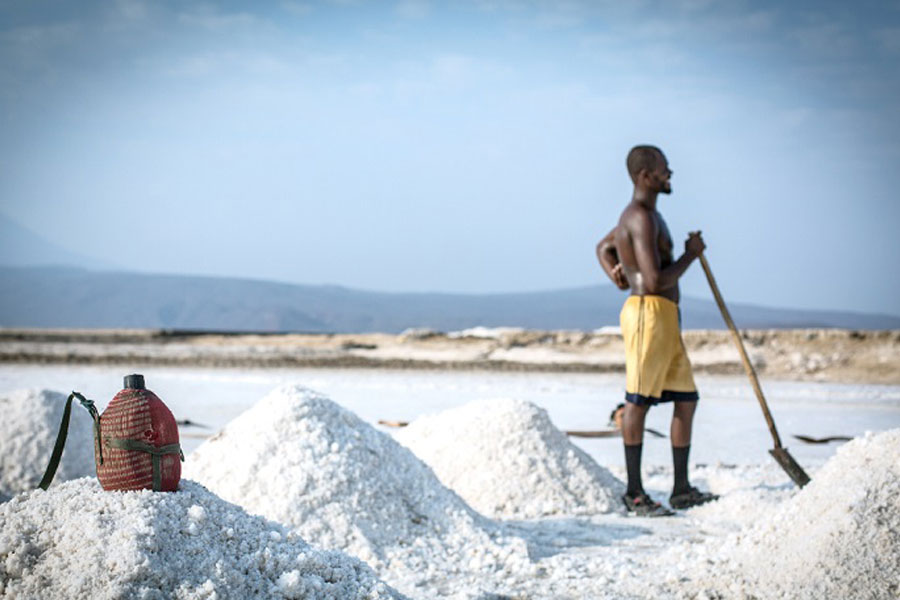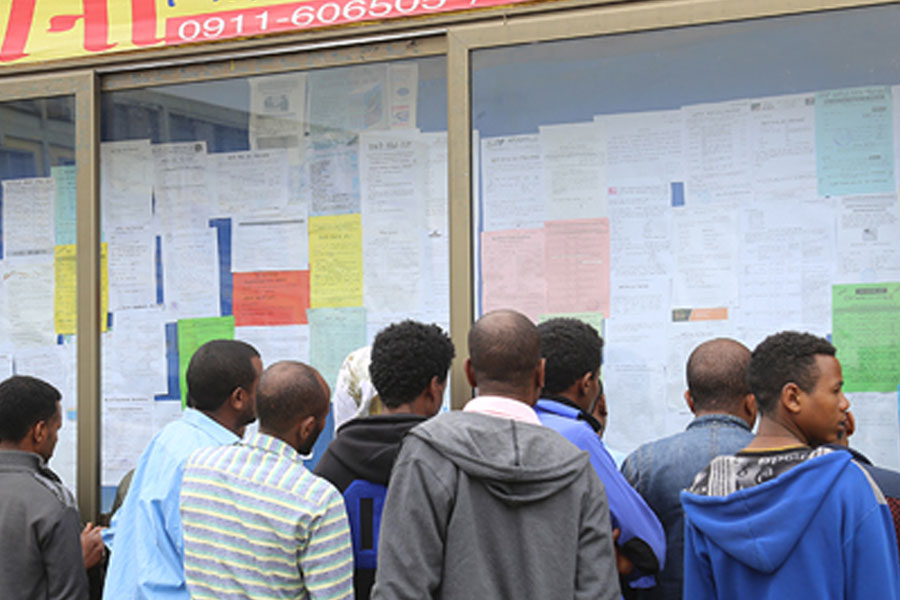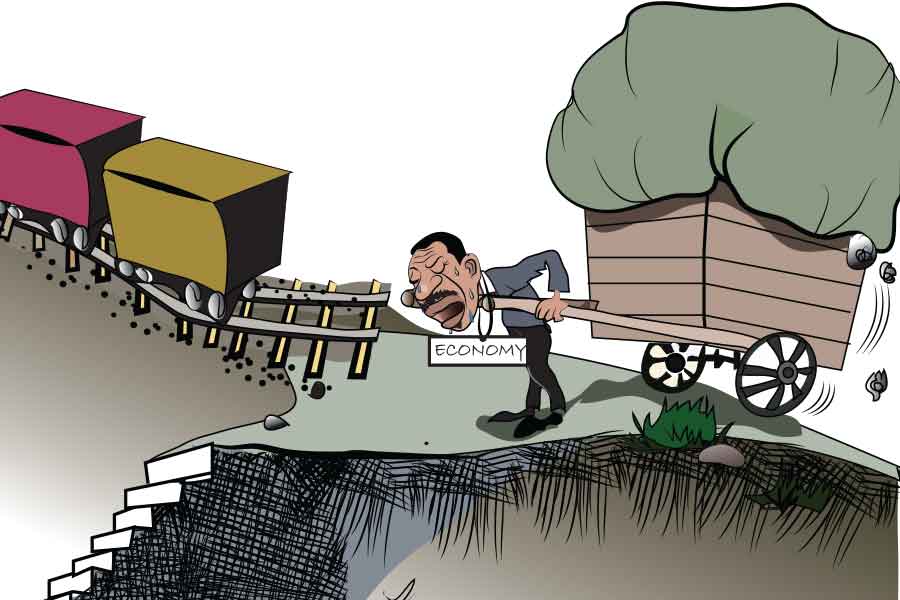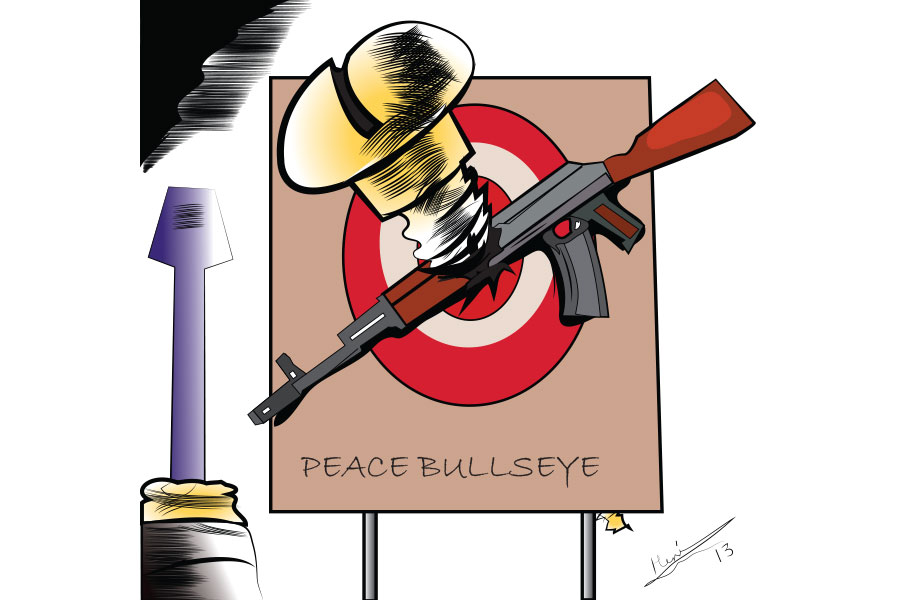
May 28 , 2022
By Jeffrey Frankel
The US dollar is up 12pc against the euro over the past year and, at 0.93 euros, is approaching parity. If prices of oil and other commodities now seem high in dollar terms, they look even higher in euros. With the greenback surging and inflation in many countries currently at multi-decade highs, we may be entering so-called “reverse currency wars” – in which countries compete to strengthen their currencies’ foreign-exchange values.
The term “currency wars” was originally a colourful description of what international economists had long called “competitive devaluations” or, after exchange rates began to float in the early 1970s, “competitive depreciations.” In these situations, countries feel aggrieved that their trading partners are deliberately pursuing policies to weaken their own currencies in order to gain an unfair advantage in international trade. Competitive depreciation can arise when all countries’ main macroeconomic goals, in addition to maximising GDP growth and employment, include improving their trade balances. This generally describes the past few decades in the world economy.
A reverse currency war, on the other hand, involves competitive appreciation. Here, countries think their trading partners are deliberately trying to strengthen their currencies in order to rein in inflation. This could describe the period that began in 2021, when inflation returned as a serious problem in most countries.
In both cases, it is impossible for all countries to pursue such strategies, because they cannot all move their exchange rates in the same direction at the same time. Both competitive depreciation and competitive appreciation are often perceived as evidence of a lack of international cooperation to achieve exchange-rate stability, and sometimes lead to calls for a new Bretton Woods-type arrangement to promote greater policy coordination.
The United States has often been quick to allege that other countries’ currencies are unfairly undervalued. Since 1988, Congress has required the Department of the Treasury to submit semi-annual reports on whether America’s major trading partners are manipulating their currencies. China and other Asian countries are the most frequent targets. But Switzerland is also under suspicion, even though the Swiss franc is easily the most expensive major currency by other criteria.
In February 2013, the US Treasury spearheaded a sort of micro-Bretton Woods agreement whereby G7 countries would refrain from taking steps to depreciate their currencies. The 2013 pact is little known, but it has worked. Over the past decade, G7 members have not intervened to sell their own currencies on the foreign exchange market.
China, which is not a G7 member, does intervene in the currency market. Since 2014, however, it has done so to slow the renminbi’s depreciation, not to encourage it.
The phrase “currency war” was coined in 2010 by Brazilian leaders protesting the monetary policies of the US, Japan, and other countries. They did not accuse the US Federal Reserve and the Bank of Japan of explicitly devaluing the dollar or the yen, or of intervening in the foreign-exchange market to drive down these currencies, but rather of adopting excessively loose monetary policies. US and Japanese policymakers, their Brazilian counterparts argued, had cut interest rates to zero, and then gone further by introducing quantitative easing, with the deliberate intention of depreciating their countries’ currencies, boosting net exports, and exporting unemployment to their trading partners.
Similarly, nobody today accuses the US authorities of using foreign-exchange intervention to appreciate the dollar. The complaint is rather that the Fed’s current interest-rate increases attract capital inflows to the US and strengthen the greenback, forcing up interest rates internationally and thus keeping global growth below where it could be.
There is ample historical precedent for fears of competitive devaluation, most notably the 1930s, when major powers devalued their currencies against gold and thereby against each other. Is there also a precedent for competitive appreciation?
Some have argued that the early 1980s provided such an example. When the Paul Volcker-led Fed raised interest rates sharply to fight inflation, it knew that it would be aided in that task by the dollar’s appreciation. But the corresponding depreciation of US trading partners’ currencies worsened their inflation rates and forced them to raise interest rates as well.
Today, the most likely victims of a strengthening dollar are not other major rich countries, but rather emerging and developing economies. Many of them have substantial dollar-denominated debts, exacerbated by the fiscal spending required to fight the COVID-19 pandemic. When the dollar appreciates, their debt-servicing costs increase in local-currency terms. The combination of rising global interest rates and a stronger dollar can trigger debt crises, as it did in Mexico in 1982 and 1994.
But not all fears of competitive appreciation are justified or merit a reform of the international currency system. Unlike most central banks, the BoJ kept its monetary policy very loose over the last year, in a continuation of its long campaign to raise growth and inflation. So, while the Fed is raising interest rates in an effort to slow US price rises, Japanese rates are still at or below zero. As one would predict, the widening interest-rate differential has caused the yen to depreciate by about 15pc against the dollar over the past year.
Overall, this big change in the dollar-yen exchange rate is not really a problem. It has pushed up Japanese prices while exerting downward pressure on US inflation. That is what both countries wanted. Floating currencies allow each country to pursue the monetary policy that suits its own circumstances.
But with high global inflation likely to persist for some time, the prospect of reverse currency wars is looming larger. Instead of a race to the bottom in the foreign exchange market, we may see a scramble to the top – and poorer countries are likely to suffer the most.
PUBLISHED ON
May 28,2022 [ VOL
23 , NO
1152]


Radar | May 15,2021

Fortune News | Feb 07,2024

View From Arada | Apr 02,2022


Editorial | Jul 03,2021

Viewpoints | May 27,2023

Fortune News | May 16,2020

Commentaries | Jul 10,2021

Fortune News | Aug 29,2020

Viewpoints | Oct 26,2024

My Opinion | 131451 Views | Aug 14,2021

My Opinion | 127803 Views | Aug 21,2021

My Opinion | 125783 Views | Sep 10,2021

My Opinion | 123419 Views | Aug 07,2021

Dec 22 , 2024 . By TIZITA SHEWAFERAW
Charged with transforming colossal state-owned enterprises into modern and competitiv...

Aug 18 , 2024 . By AKSAH ITALO
Although predictable Yonas Zerihun's job in the ride-hailing service is not immune to...

Jul 28 , 2024 . By TIZITA SHEWAFERAW
Unhabitual, perhaps too many, Samuel Gebreyohannes, 38, used to occasionally enjoy a couple of beers at breakfast. However, he recently swit...

Jul 13 , 2024 . By AKSAH ITALO
Investors who rely on tractors, trucks, and field vehicles for commuting, transporting commodities, and f...

Jun 28 , 2025
Meseret Damtie, the assertive auditor general, has never been shy about naming names...

Jun 21 , 2025
A well-worn adage says, “Budget is not destiny, but it is direction.” Examining t...

Jun 14 , 2025
Yet again, the Horn of Africa is bracing for trouble. A region already frayed by wars...

Jun 7 , 2025
Few promises shine brighter in Addis Abeba than the pledge of a roof for every family...

Jun 29 , 2025
Addis Abeba's first rains have coincided with a sweeping rise in private school tuition, prompting the city's education...

Jun 29 , 2025 . By BEZAWIT HULUAGER
Central Bank Governor Mamo Mihretu claimed a bold reconfiguration of monetary policy...

Jun 29 , 2025 . By BEZAWIT HULUAGER
The federal government is betting on a sweeping overhaul of the driver licensing regi...

Jun 29 , 2025 . By NAHOM AYELE
Gadaa Bank has listed 1.2 million shares on the Ethiopian Securities Exchange (ESX),...